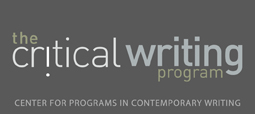Penn Professors on Writing in Finance
Dr. Richard Herring

About the Professor
Dr. Richard Herring is the Jacob Safra Professor of International Banking and a Professor of Finance at the Wharton School. He received his A.B. from Oberlin College and his M.A. and Ph.D. from Princeton University. Dr. Herring previously served as Director of The Joseph H. Lauder Institute and Vice Dean of the Wharton Undergraduate Division, and is currently a co-director of the Wharton Financial Institutions Center. Dr. Herring is known for assigning a weekly writing task to students in his International Banking course, a practice uncommon in the discipline.
More information can be found at: Dr. Herring's webpage
Writing Process
"My writing is somewhat of a linear process, as I want to be sure from the beginning that the evidence will fit together with the reasoning. Before I begin writing, I do a lot of reading on relevant topics, taking notes and then using a piece of software called MindManager, which is a tool that allows me to map my ideas as I form them. I use this to move my ideas around and form a structure for my reasoning.
Although I wouldn't recommend it otherwise, I start by writing the introduction, which details what I want to say in the paper. The introduction is always a work-in-progress and gets revised several times before the finished publication."
Writing Influences
Dr. Herring has many writing inspirations in his field. Two of his biggest inspirations are:
- Charles A. Goodhart, an economist from the London School of Economics who was a member of the Bank of England's Monetary Policy Committee from 1997-2000.
- Charles W. Calomiris, the Henry Kaufman Professor of Financial Institutions at the Columbia Business School.
Dr. Herring has worked with both Goodhart and Calomiris on several occasions. He is also inspired by Harvard's Richard N. Cooper, whose writing he describes as "very concise and graceful while logically rigorous."
Important Criteria for Student Writing
Dr. Herring assumes that most of his students are going into some sort of business, and while he hopes that they get into research, he wants to ensure that they are able to write a good financial memo at the very least. The skills that are required for this are concision, persuasion, and the ability to stick to and defend a position.
As Wharton’s former Undergraduate Dean and Director of the Lauder Institute, Herring frequently encounters students whom he describes as "having very strong analytical skills but lacking communication and writing abilities." On his writing assignments, in particular, he says that students have a hard time doing more than just summarizing rather than analyzing and synthesizing the articles they find. In addition, he finds that students struggle with active and passive voice, an understanding of which is central to research writing in this field. He describes the essence of a good sentence as concise with persuasive active language.
The three most important things that Professor Herring looks for in a student's writing are: 1) grammar and style 2) organization and 3) overall critical thinking (analysis, reasoning, synthesis).
Example of Professional Writing
Implementing Basel II: Is the Game Worth the Candle? (2005), Financial Markets, Institutions & Instruments, 14 (5).© 2013 The University of Pennsylvania
